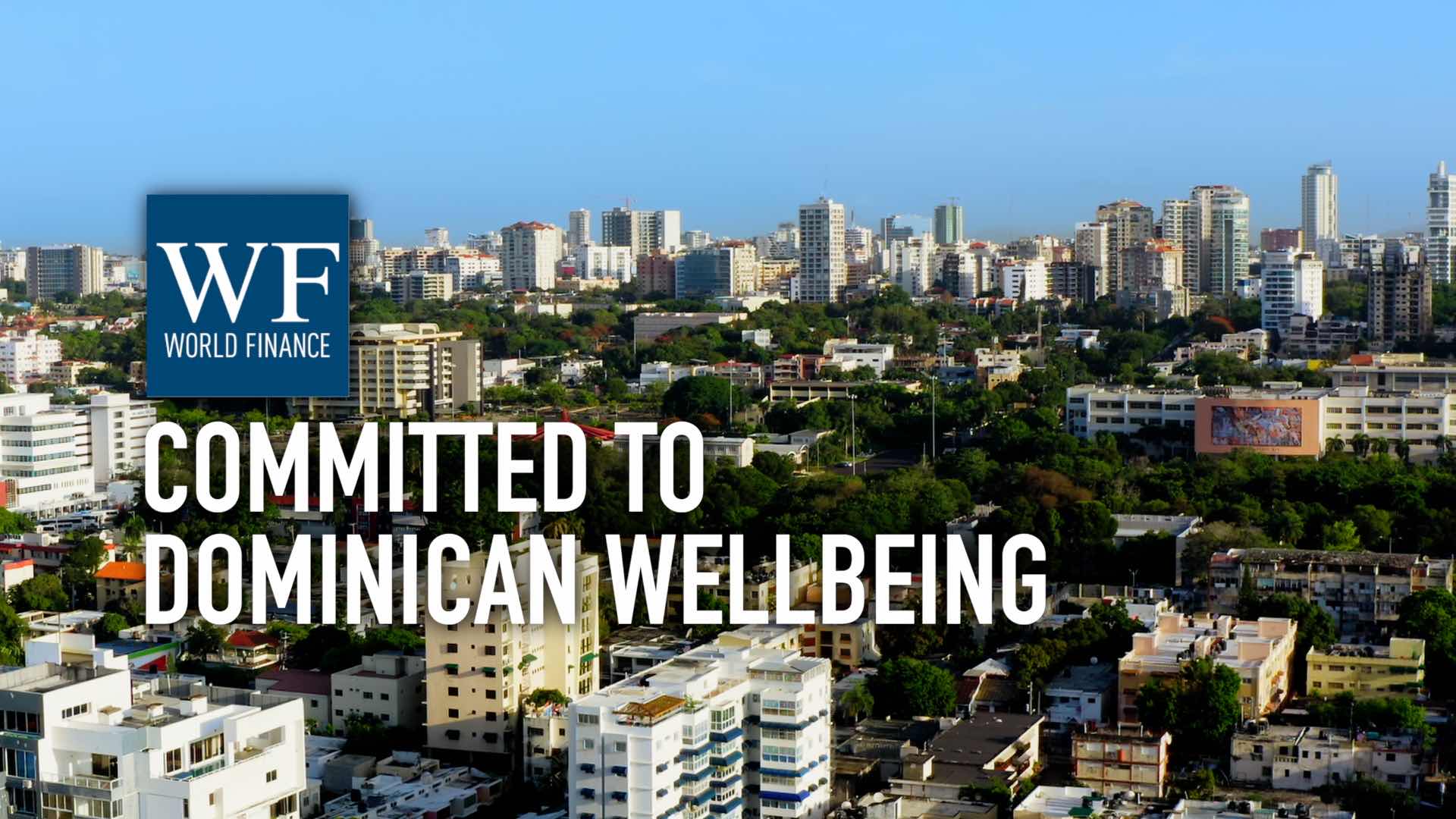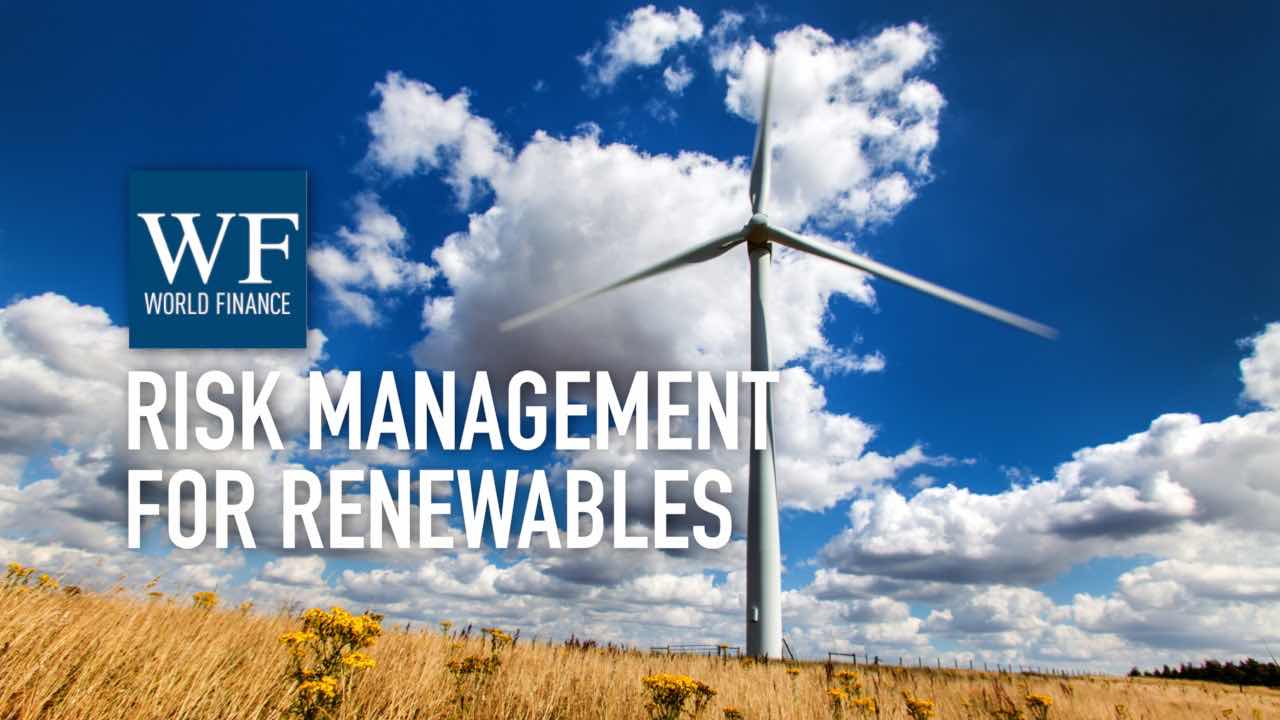Renewable energy in Saudi Arabia | ACWA Power | Video
World Finance speaks to Paddy Padmanathan, Thamer Al Sharhan and Rajit Nanda, from ACWA Power, about Saudi Arabia's renewable energy sector
Related:
Transcript
Increasingly, renewable energy is being pushed to the forefront of government agendas. Paddy Padmanathan, Thamer Al Sharhan and Rajit Nanda, from Saudi developer ACWA Power, discuss the future for renewable energy in the GCC region, the challenges and opportunities, and how their business is developing its portfolio
Energy, and more specifically renewable energy, is at the forefront of most governmental agendas, including oil rich nations like Saudi Arabia. I’m here with Paddy Padmanathan, Thamer Al Sharhan, and Rajit Nanda to speak about how and why this major policy change is going to be implemented.
World Finance: Well Paddy, let’s start with you, and of course Saudi Arabia is a leading oil producer, but there has been talk of it embracing its renewable energy policy. How likely is this to happen?
If we can develop this as a new source, we have an unbeatable opportunity to create a new industrial platform
Paddy Padmanathan: Firstly, we have abundant resources, and we have land that is available to deploy renewable energy. Secondly, we actually have the demand in our part of our world of electricity. Demand is growing at about nine percent per annum, so we need more and more new energy capacity. Provided we price fossil fuel, which is the alternative that we have available to generate electricity at the market price, already renewable energy is the most competitive solution for a segment of the demand curve. And of course, finally, we have a very young population that we need to provide employment opportunities and economic value creation strategies. If we can develop this as a new source, we have an unbeatable opportunity to create a new industrial platform.
World Finance: So Thamer over to you now, and how developed are renewables in the GCC region?
Thamer Al Sharhan: Currently not that much, we are having a lot of potential, we have the highest radiation in the world. Also, we are blessed with a lot of wind potential, geothermal, and we are waiting for this to get developed.
World Finance: So what are the major challenges for renewables in the region today?
Paddy Padmanathan: A lack of understanding of the true cost of producing electricity using what we use today, fossil fuels, not only by the public, but also even by some of the important policy makers. When you have got electricity retailing at 3 cents per kWh, and the cheapest cost of producing renewable energy is 12 US cents per kWh, of course common sense says how on earth is this going to be affordable, why do you think this is ever going to happen? Well the reality is that we are producing and dispatching electricity at three cents per kWh, only because we are consuming our own oil at $4.40 a barrel, instead of the world market price of $100, and we are consuming gas at 75 cents per mn BTU compared to whatever you want to take as a gas price.
[T]here is a solid case for moving into renewables, reduce oil consumption, and therefore diversify the energy mix
Rajit Nanda: What the policymakers have recognised is that obviously the demand for energy is growing at about nine percent, and therefore the consumption is also going to grow concomitantly, and therefore there is a need to look at alternative ways to save this fuel. At the same time, it coincides with a decline in the cost of producing renewable energy. So all of this put together, what it means is that there is a solid case for moving into renewables, reduce oil consumption, and therefore diversify the energy mix.
Thamer Al Sharhan: There is a healthy debate in the region about the use of renewable energy, from economical viability, technical suitability, and reliability for our market. We at ACWA Power encourage these healthy debates, and also participate in an educational campaign
World Finance: Well Rajit, ACWA Power set quite an ambitious target three years ago, that five percent of your portfolio would be renewable energy within the next five years. How is this going?
[M]ore than 30 percent of energy will start to get generated using renewable energy in the MENA region
Rajit Nanda: Today we’ve managed $23.5bn of generation and desalination water portfolio. Of this, about $1.5bn is in the renewables sector. Now what is happening is essentially all the procurers and generators in our target market have realised that renewable is an important component of the energy mix going forward, and there has been an escalation in terms of the requirement for energy coming from the renewables sector. Currently, over the next 12 months we are preparing investments to the tune of $15bn, of which about 50 percent is in the renewables sector.
Paddy Padmanathan: What’s interesting also from the experience you are seeing just with us is that it’s perfectly plausible, as you can see from this anecdotal evidence, if you extrapolate it, that within the next two decades, more than 30 percent of energy will start to get generated using renewable energy in the MENA region.
World Finance: Paddy, Rajit, Thamer, thank you.
All: Thank you.

 Banco Popular: Caring for the aspirations of the Dominican Republic
Banco Popular: Caring for the aspirations of the Dominican Republic Aristoteles levels playing field for investment into renewable energies
Aristoteles levels playing field for investment into renewable energies
